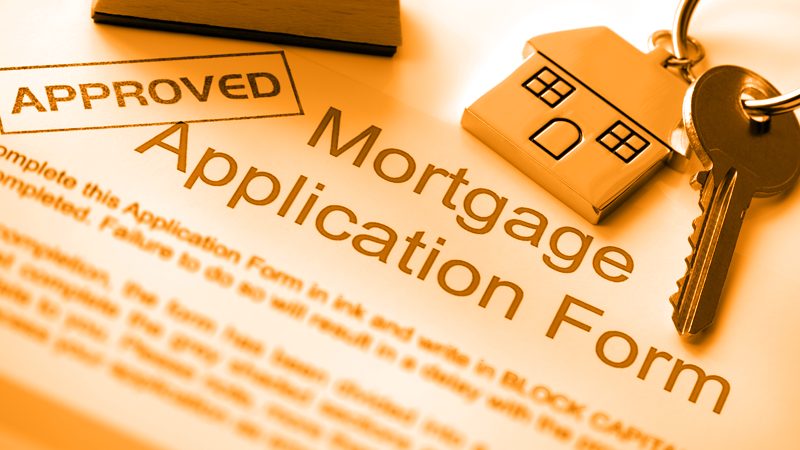Fixing your mortgage can ensure peace of mind and protect you from the higher costs of future interest rates.
Deciding whether to fix the interest rate and for how long is a big decision when applying for a mortgage since it will determine the costs of your monthly repayments.
Read on to learn more and ensure you make an informed decision when deciding whether you should fix your mortgage.
Why Should You Consider Fixing Your Mortgage?
A rise in interest rates can be scary for many borrowers.
A fixed-rate mortgage can protect you from future rate rises and ensure your mortgage repayments don’t change because of interest rate changes.
A fixed-rate mortgage offers a fixed interest rate for a certain period, and you’re guaranteed to pay the same amount every month.
Interest rates in the UK have been rising since 2021, and with inflation still high, more interest rate rises are likely.
This will impact the mortgage market and result in higher mortgage rates, meaning your monthly repayments will go up if you don’t fix your mortgage beforehand.
Fixed-rate mortgages are a common type of home loan in the UK.
They allow borrowers to know exactly how much they’re paying each month without worrying about unexpected changes.
How Long Should I Fix My Mortgage For?
You can choose to fix your mortgage rate for 1, 2, 3, 5, 7, 10, or 15 years.
One-year and 15-year fixes are rare, with most fixed-rate mortgages involving two-year and five-year deals.
Two-year fixes are cheaper and usually provide more freedom and access to the best rates on offer.
Some lenders can set an initial lower fixed interest rate for some time as an incentive to encourage you to apply.
If you can get a new incentive period or deal at substantially lower rates than you’re currently paying, you can save money by switching or remortgaging, especially if there are low or no early repayment charges.
Two-year deals are suitable if you want to switch deals regularly or are considering moving home soon.
A five-year deal can protect your mortgage for longer, but it will be more expensive.
It’s harder for lenders to predict what will happen in the market over a longer period, so the longer you fix your mortgage, the higher the interest rate will be.
Consider how long you want to commit to a deal and whether your circumstances are likely to change soon.
Fees On Fixed Rate Deals
You need to look out for various charges when comparing fixed-rate mortgage deals. These include:
Early Repayment Charges
If you want to exit the deal before the end of the fixed rate period, the lender can charge a financial penalty known as the early repayment or redemption charge.
The charges are usually set as a percentage of the outstanding balance and can be quite expensive, especially in the early years of the fixed-rate period.
For example, early repayment charges can start at around 5% or 2% of the balance for five-year and two-year fixes in the first year and reduce by 1% each year after that.
If you’re likely to move house before the fixed-rate period ends, you’ll want to consider a shorter-term fixed-rate deal or deals with low or no early repayment charges.
Up-front Fees
Lenders can charge an upfront fee for a fixed-rate mortgage, which can be an arrangement fee, product fee, or completion fee.
Most lenders charge around £999, but some deals can feature fees as high as £1,499 or £1,999.
Fixed-rate mortgage deals with zero upfront fees are also available, but they usually feature higher interest rates.
Sometimes deals with higher interest rates and zero upfront fees can work out cheaper over the fixed term, so ensure you compare your options.
Overpayment Fees
Lenders can set how much you’re allowed to overpay each year on an ad hoc basis or in regular overpayments.
Most fixed-rate mortgage providers allow you to overpay up to 10% of the balance yearly, and if you exceed this amount in the period, you get an early repayment charge.
What Should I Do When The Fixed Rate Period Ends?
Your lender will transfer you to a standard-variable rate (SVR) mortgage when the fixed-rate period ends.
With SVR mortgages, lenders can increase or decrease mortgage repayments at any time.
Most lenders move in line with the Bank of England’s base rate, so if it goes down, your repayments decrease, but if it goes up, your repayments increase.
However, lenders aren’t required to mirror the Bank of England’s base rate and can move it whenever they want.
SVRs tend to be more expensive with a higher rate than you would get for a fixed rate period.
It’s not uncommon for SVRs to double the rate you had on the fixed-rate period and considerably impact your monthly payments.
Therefore, it’s important to remortgage to a new deal before you’re transferred to the SVR.
You can arrange it with your current lender or a new provider as much as six months before your fixed period is due to end.
Are Interest Rates Likely To Change?
Taking current interest rates into account can help you decide whether or not you should fix your mortgage and for how long.
With inflation peaking at the end of 2022, thanks to increases in food and energy prices, the Bank of England base rate will likely go up to try and control the inflation levels.
Therefore, it’s an excellent time to fix your mortgage for two or five years and lock in a lower rate.
The low rate will be guaranteed, and your monthly payments will not change even when interest rates rise.
Should I Fix My Mortgage? Final Thoughts
Now is a great time to consider fixing your mortgage before further increases in the base rate come into force.
You’ll be able to lock in lower rates for the entire fixed-rate period, so you know exactly how much you’re paying each month.
Ensure you consult an independent mortgage broker who can help you find the best deals and guide you through the entire process.
Call us today on 01925 906 210 or contact us. One of our advisors can talk through all of your options with you.










